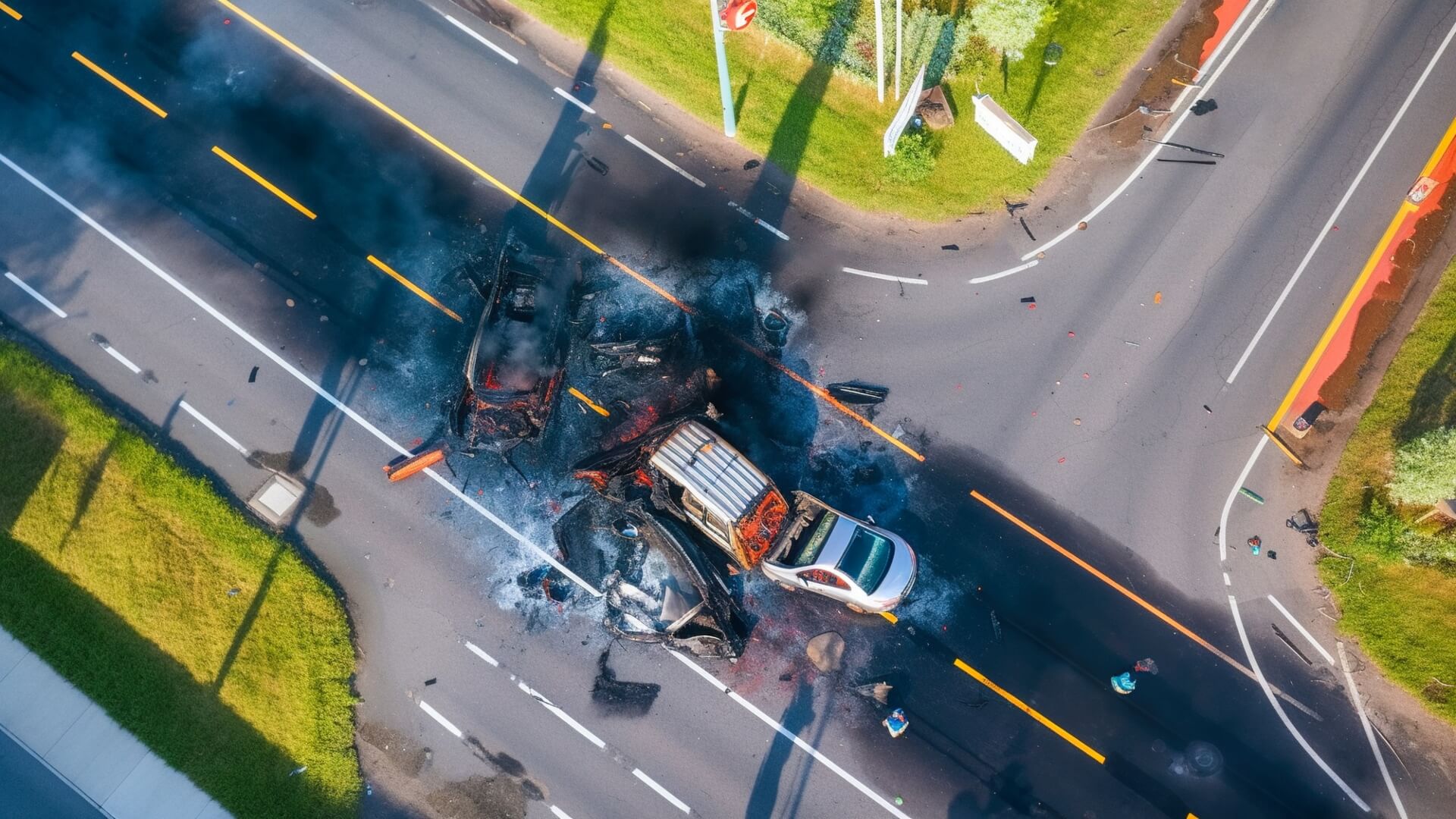In the aftermath of an accident, navigating the legal landscape can be overwhelming.
From understanding your rights to dealing with insurance claims and potential lawsuits, the post-accident legal process is a complex web that requires careful consideration.
In this guide, we aim to highlight the intricacies of post-accident legal procedures, providing you with essential information to help you make informed decisions.
Understanding Your Rights and Responsibilities
Immediately after an accident, being aware of your rights and responsibilities is crucial. Your first priority is the safety and well-being of all involved parties. Once safety is ensured, start gathering crucial information, including names, contact details, and insurance information of those involved. Take photographs of the accident scene, vehicle damages, and any visible injuries.
Report the incident to the police, ensuring an official record is created. This report often becomes a key piece of evidence in insurance claims and legal proceedings. It’s important to know that admitting fault or assigning blame at the scene is unnecessary and may complicate matters later. Instead, focus on exchanging factual information.
According to Forbes, police reports may include both facts and the law enforcement officer’s opinions. Facts include information about the make and model of the cars involved, as well as the location and time of the accident. The attribution of fault in a car accident in the report is typically the opinion of the police officer at the scene.
Understanding your insurance policy is equally critical. Know your coverage limits, deductibles, and the process for filing a claim. This knowledge empowers you when dealing with insurance companies and ensures you receive the compensation you deserve.
Navigating the Insurance Claim Process
Filing an insurance claim is a step-by-step process that requires attention to detail. Start by contacting your insurance provider promptly after the accident. Provide accurate and comprehensive information about the incident, sticking to the facts. Submit photographs, police reports, and any other relevant documentation.
According to FindLaw, your claim might be denied if you wait too long to file it after the accident. Failure to undergo an independent medical examination can also lead to a denial. Additionally, certain types of car accidents may not be covered by your insurance plan, resulting in a claim rejection.
During the claim process, it’s common for insurance adjusters to assess damages. Be present during these assessments to ensure all damages are accurately recorded. Keep detailed records of all communication with your insurance company, including names, dates, and summaries of conversations.
Negotiating a fair settlement is often part of the process. Research the value of your damages, including medical expenses, property damage, and lost wages, to develop an understanding of what constitutes a reasonable settlement. If negotiations become challenging, consider seeking legal advice to protect your interests.
Seeking Medical Attention and Documenting Injuries
Prompt medical attention is crucial for your health and any potential legal claims. Even seemingly minor injuries can have long-term consequences, so seek medical help regardless of the perceived severity.
As per information from mighty.com, whiplash stands out as a frequently occurring injury in car accidents. This injury happens when the neck undergoes a forceful jerking motion in both forward and backward directions. This results in tension or sprain in the muscles and ligaments of the neck.
Document your injuries thoroughly, including photographs, medical reports, and treatment plans. This documentation not only aids in your recovery but also serves as valuable evidence in legal proceedings. Keep a detailed record of all medical expenses, prescriptions, and any other related costs.
If injuries manifest or worsen after the initial medical examination, seek follow-up care. This ensures that the full extent of your injuries is documented, supporting your case for fair compensation. By prioritizing your health and documenting injuries, you strengthen your position in the post-accident legal process.
Legal Representation and Its Significance
According to Keith Law Group, hiring legal representation can be a game-changer in navigating post-accident legal procedures. An experienced attorney understands the complexities of the legal system and knows how to assess the value of your case. They can effectively negotiate with insurance companies on your behalf.
When selecting an attorney, consider their expertise in personal injury law and their track record in handling similar cases. Many attorneys offer free consultations, allowing you to discuss your case and evaluate their suitability.
Your attorney will guide you through the legal process, ensuring all necessary documentation is filed correctly and within relevant time frames. They will negotiate with insurance companies and, if necessary, represent you in court. Legal representation provides peace of mind, allowing you to focus on your recovery while professionals handle the intricacies of the legal proceedings.
Dealing with Police Reports and Legal Documentation
Police reports are crucial documents that provide an official account of the accident. Ensure you obtain a copy of the report as soon as it’s available. Review it carefully for accuracy and report any discrepancies to the relevant authorities promptly.
Accurate and complete legal documentation is vital for building a strong case. Keep a comprehensive file that includes the police report, witness statements, medical records, insurance correspondence, and any other relevant documents. Organizing this information will streamline the legal process and provide a clear overview of your case.
Respond promptly to any requests for additional information or documentation from law enforcement, insurance companies, or your attorney. Timely and thorough cooperation contributes to a smoother legal process and enhances the credibility of your case.
The Role of Witnesses and Expert Testimony
Witnesses play a crucial role in corroborating the events surrounding the accident. Obtain contact information from any witnesses at the scene, and encourage them to provide statements to the police. These statements can serve as valuable evidence in supporting your version of events.
If necessary, your attorney may also seek expert testimony to strengthen your case. Expert witnesses, such as accident reconstruction specialists or medical professionals, can provide insights and analysis that bolster your claims. Coordinating with witnesses and experts ensures a more comprehensive presentation of your case during legal proceedings.
Maintain open communication with witnesses, keeping them informed of the progress of your case. Their willingness to testify can be instrumental in building a compelling narrative that supports your position.
Considering Regional Legal Complexities
Navigating the post-accident legal process requires an understanding of regional legal nuances. Jurisdictional differences can impact the procedures and regulations applicable to your case. Research and familiarize yourself with the specific laws governing your region, as they may influence the outcome of legal proceedings.
In some areas, no-fault insurance laws may be in place, altering the way claims are processed. Additionally, statutes of limitations, which vary by region, dictate the timeframe within which legal action must be initiated. Failure to adhere to these timelines can jeopardize your ability to seek compensation.
Let’s explore specific nuances of the state of Arkansas to gain valuable insights into the diversity of legal landscapes.
Located in the heart of the United States, Arkansas boasts a unique cultural and legal identity. When dealing with post-accident legal procedures in Arkansas, it’s essential to consider the state’s regional dynamics. One distinctive feature is the emphasis on community values and close-knit relationships, which can impact the resolution of legal matters.
Arkansas is known for its rural expanses, and this geographical aspect can influence the availability and response time of emergency services. In remote areas, emergency assistance may take longer to arrive, impacting the immediacy of medical attention and potentially influencing legal considerations.
Furthermore, the cultural emphasis on politeness and neighborly relations in Arkansas can also extend to legal proceedings. In some cases, parties involved may attempt to resolve issues amicably or through alternative dispute resolution methods before resorting to formal legal action. Understanding and respecting these local customs can contribute to more effective communication and negotiation.
When diving into the regional legal complexities of Arkansas, it’s essential to highlight the dynamics of specific cities within the state. Rogers, a vibrant city in northwest Arkansas, introduces its own set of considerations in post-accident legal procedures.
As part of the rapidly growing Northwest Arkansas region, Rogers embodies a unique blend of urban development and natural beauty. Its economic prosperity, fueled by retail, technology, and healthcare sectors, can impact the financial implications of accidents in the area. The availability of resources for legal representation, medical care, and potential compensation may be influenced by the economic vibrancy of the city.
Rogers is also known for its diverse demographic makeup. With a mix of local residents, transplants, and a growing immigrant population, cultural nuances can play a role in legal interactions. Sensitivity to cultural differences and an understanding of the diverse perspectives within the community become crucial when navigating the post-accident legal process in Rogers.
The city’s strategic location along major transportation routes, including Interstate 49, contributes to a higher volume of traffic. This increased traffic can impact the frequency and nature of accidents, influencing how insurance claims and legal proceedings are handled. The challenges associated with accidents on busy highways or within city limits should be considered when navigating the legal aftermath.
Rogers is also situated in close proximity to outdoor recreational areas, including Beaver Lake and the Ozark National Forest. Accidents in these scenic locales may present unique challenges in terms of emergency response times and accessibility. A Rogers car accident lawyer can help you understand the potential logistical hurdles associated with accidents in such areas.
Lawyers in Rogers also have well-established relationships not only within the broader Arkansas legal community but also with professionals specific to the city. Familiarity with local judges, law enforcement, and insurance representatives can influence the trajectory of a case. Engaging an attorney with knowledge of Rogers ensures a nuanced approach to navigating the city’s unique legal landscape.
Financial Planning and Long-Term Considerations
In the aftermath of an accident, it’s essential to address not only immediate expenses but also plan for long-term financial considerations. Medical bills, property repairs, and potential legal fees can accumulate quickly, impacting your financial stability. Start by creating a detailed overview of your current financial situation, including existing debts and monthly expenses.
Consult with your insurance provider to understand coverage limits and any potential out-of-pocket expenses. If necessary, explore options for additional coverage or assistance programs that may help alleviate financial strain. A financial advisor can provide valuable insights into managing unexpected costs and creating a sustainable budget during this challenging time.
Consider the potential long-term impact on your earning capacity, especially if the accident resulted in a disability or prolonged recovery period. Disability insurance, if available, may provide financial support during periods of inability to work. Additionally, explore potential avenues for compensation or assistance, such as disability benefits or social support programs.
Planning for the future also involves assessing the impact on your career and lifestyle. If the accident has led to a change in employment or daily activities, explore vocational rehabilitation services or career counseling. By taking a proactive approach to financial planning, you can mitigate the long-term impact of the accident on your financial well-being.
In conclusion, navigating post-accident legal procedures demands a comprehensive understanding of rights, insurance processes, and regional complexities. Prioritize safety, document thoroughly, and seek medical attention promptly.
Legal representation can be pivotal, especially in negotiations and court proceedings. Acknowledging regional nuances, such as those in Arkansas or specific cities like Rogers, ensures a tailored approach.
Financial planning for immediate and long-term considerations is crucial. Ultimately, a proactive and informed approach empowers individuals to navigate the intricate web of post-accident legalities, fostering a smoother recovery and securing just compensation.

